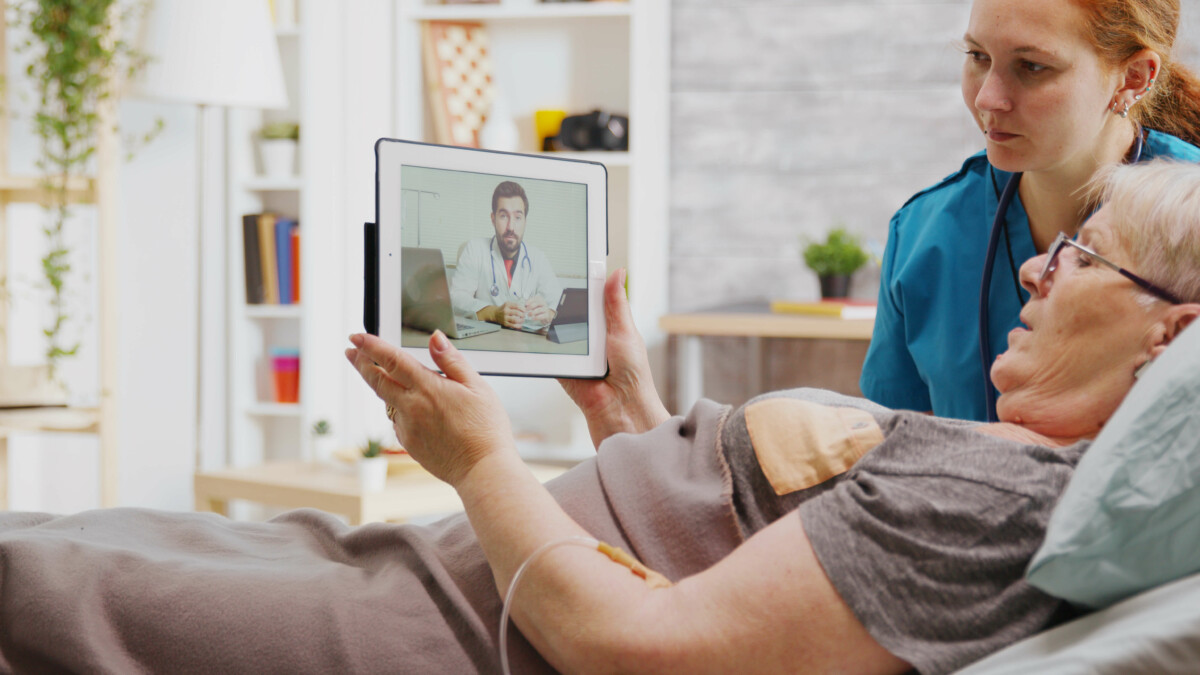The aim of PflegeDigital@BW is to raise awareness and connect people as well as organisations from different sectors and professions. We would like to not only inspire people with care needs, informal and formal caregivers and people active in civil society to consider the opportunities contained in digitalisation, but to also provide an opportunity to discuss associated challenges.
Digital technologies can and should contribute to improving the quality of care, relieve the burden on caregivers, and enable people with care needs to be able to participate in society and remain independent for as long as possible. Ranging from outpatient care to partial inpatient care and short-term care: the potentials of assistive technologies are great. However, a wide range of solutions first need to be reliably tested, in some cases improved or even integrated in a meaningful way with existing services. Moreover, necessary competencies must be developed and improved.
For this reason, we will be working together with the many different stakeholders in long-term care to create concepts for training and continuing education, organise workshops with management and staff, analyse, moderate and provide support for digitalisation measures, transformation processes as well as innovation projects in long-term care facilities and other organisations.
The state of Baden-Württemberg has identified four areas of development for digitalisation in long-term care, based on the strategy “Digitalisation in Medicine and Care in Baden-Württemberg”, through:
Four fields of action for digitalisation in long-term care:
- empowerment – enhancing inclusion and independence of people that are in need of care and assistance
Together with you, we aim to turn technical innovations into real, practice-oriented innovations that can also ensure social progress, i.e., improved participation, greater self-determination and care at eye level. - new care – providing digital support for care-related activities
“Work 4.0” is now also coming to long-term care. Processes are being digitalised to where digital innovations for instance can support invoicing, organisation and communication. Sensors provide important data for better prevention, practical apps provide information and reminders, and service robots and exoskeletons relieve the burden of strenuous and potentially harmful activities for caregivers. However, we must not only introduce the technology to caregivers in order to benefit from these improvements, but also provide them with the appropriate skills. - boosting care – facilitating digital assistance for improved organisation and management in care
There is a great potential for efficiency that lies dormant, and not just in the health and care sector. Meaningful digital support has the potential to avoid stacks of paper, duplications and a great deal of bureaucracy, while effectively alleviating stress for caregivers. This would mean that less time would have to be spent at the computer. Instead, more time is made available for communication and for the actual care work: working on and with people. - smart consultation – enhancing digital support for providing care and assistance-related information and consultation services
By providing a realistic test environment and expert-led technology demonstrations, we aim to boost participants’ technology skills and confidence in the demonstrated applications. Practical guides and tutorials, on-site workshops and straightforward video consultations are just a few examples of the consulting services we provide users in the state of Baden-Württemberg.
471913 People in need of care in Baden-Württemberg 2019
94047 People in full in-patient care
377640 People were cared for at home


